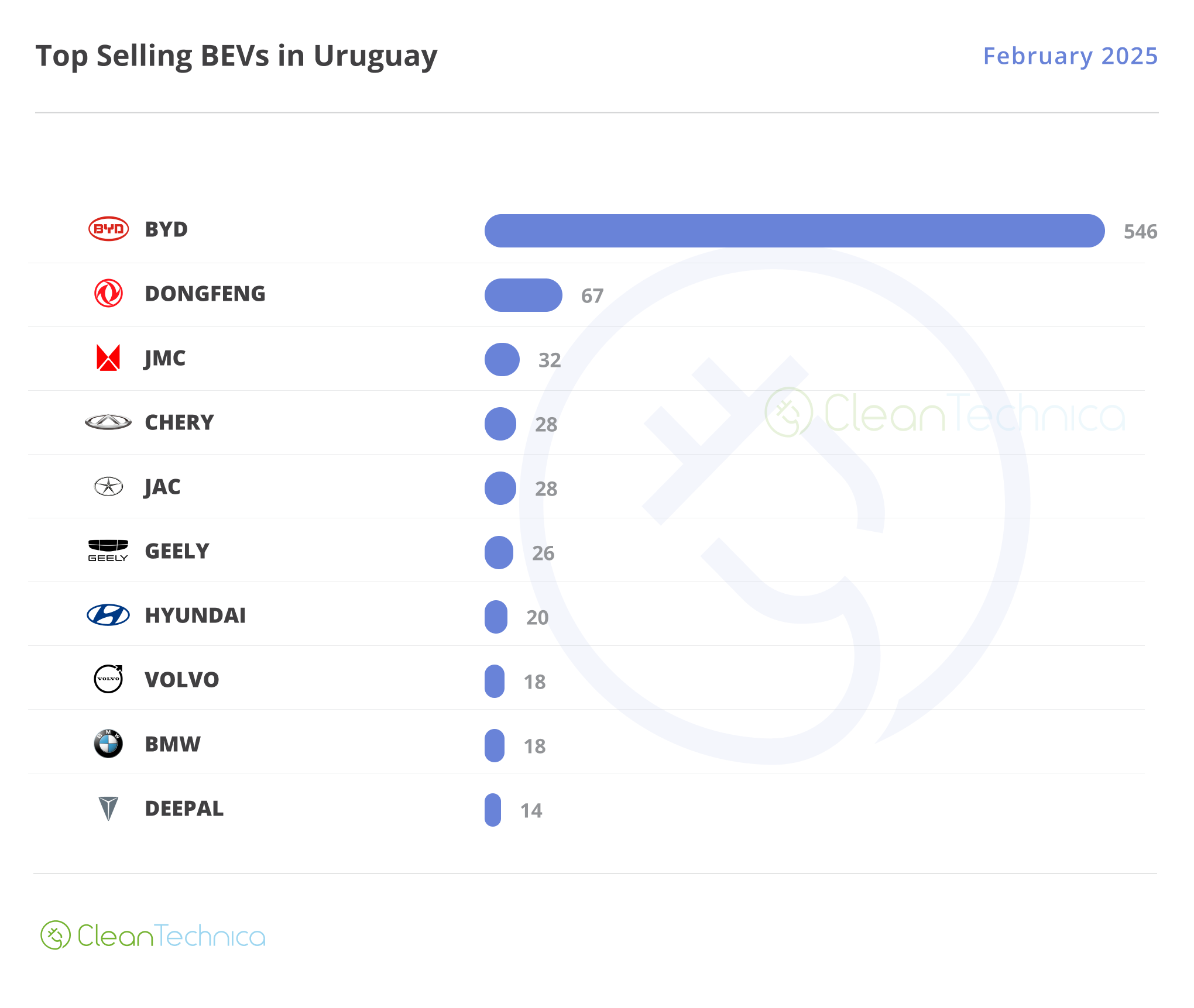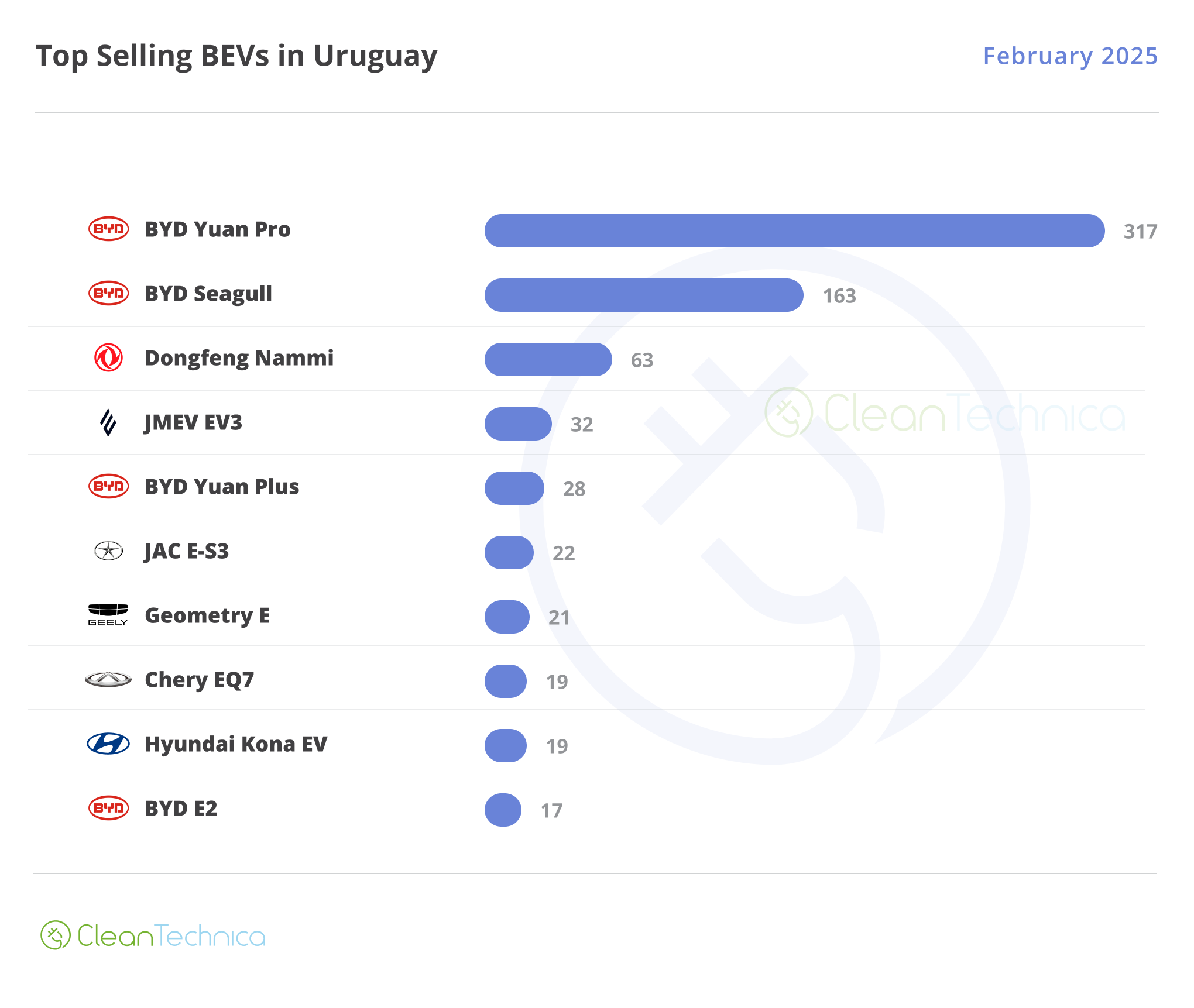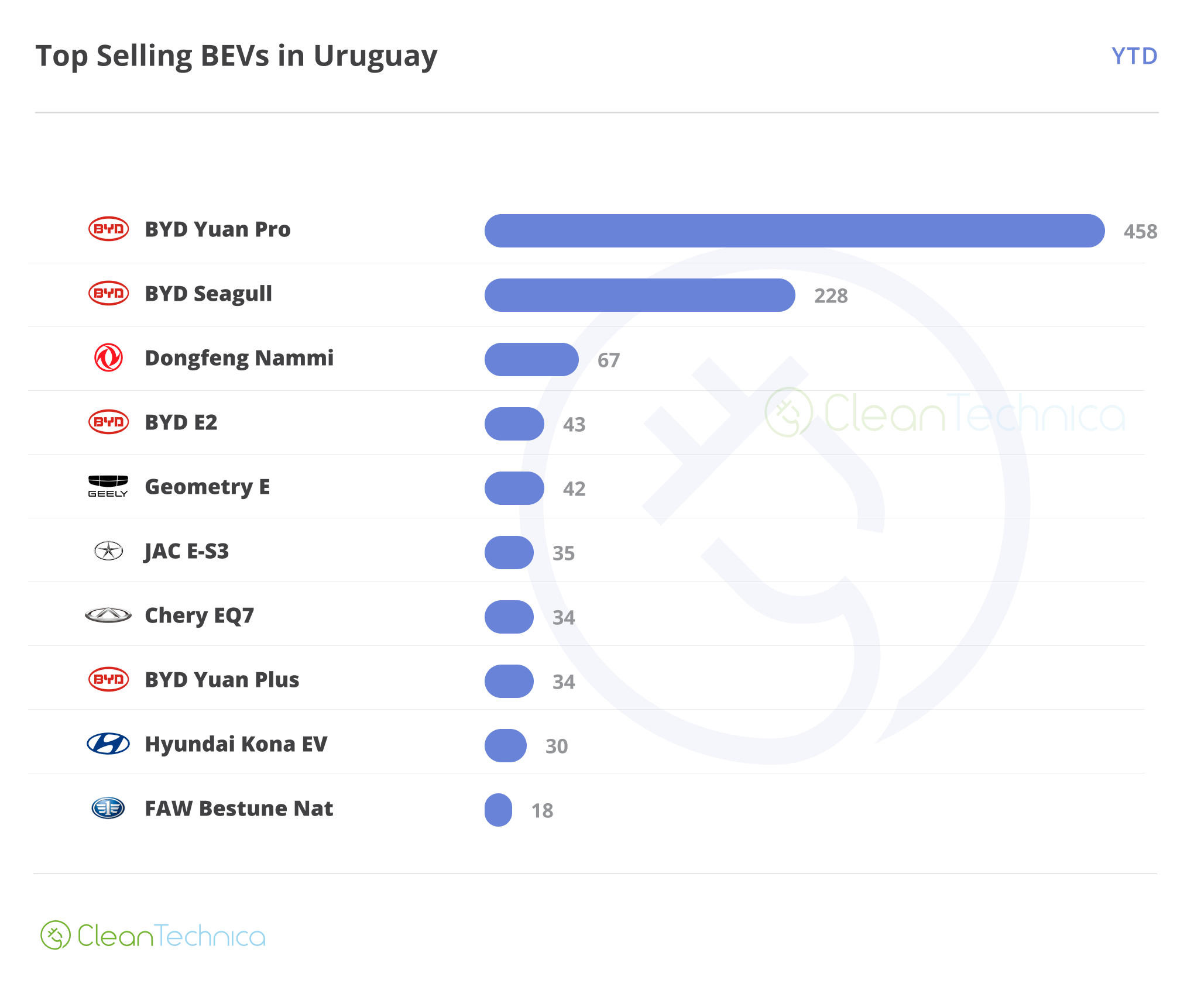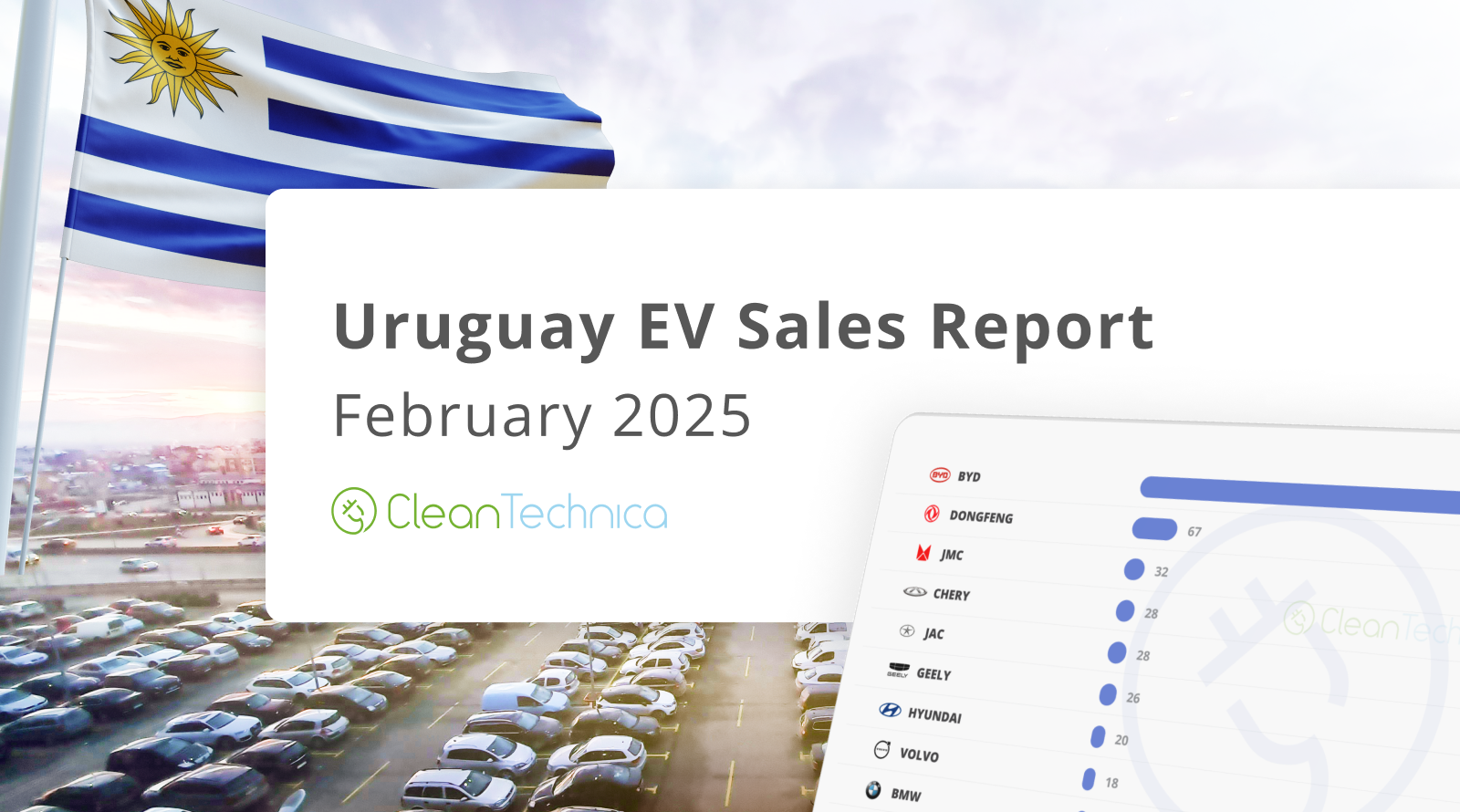Sign up for daily news updates from CleanTechnica on email. Or follow us on Google News!
Uruguay has consistently been the second most advanced country in Latin America as far as electrification goes, and it has at times competed with Costa Rica for #1. Being a very small market (with fewer than 100,000 vehicle sales a year), it is subject to high seasonal variability and, as such, its market patterns are harder to determine than those of Mexico, or even Colombia and Peru.
This is why last June we saw a massive increase in EV sales that brought Uruguay to the forefront of the transition and put it ahead of most of the world, at 15% market share. But in the following months, it became clear this month had been an outlier, and Uruguay went back to its more “normal” market share, steadily growing from 7% to 10% through 2024’s second semester.
But we’re now in 2025 and Uruguay is once again showing strong growth and signs that, hopefully, this time around, BEV sales will keep growing from here.
Market Overview
Uruguay’s official data does not report PHEVs: it merges all hybrids in the same category. However, it’s telling that even including HEVs and MHEVs, BEVs more than double hybrid vehicle sales. Uruguay, as Costa Rica, is a market heavily skewed towards BEVs.
Total vehicle sales normally hover around 6,000 units a month, meaning the nearly 900 BEV sales in February were more than enough to get Uruguay over 10% market share. This is an all-time high BEV record, surpassing December’s prior record despite lower overall sales:

Market share was 15.4% in February, up from 10% in January and 12.1% in December. The last time we saw a market share over 15%, in June 2024, it was a clear outlier (as seen in the following graph), but market share kept growing consistently and has sustained levels above 10% during the last four months. The 15.4% from February may be a large increase, but it does not seem like an anomaly:

Uruguay remains the realm of BYD, but its market share has eroded from 75% in June 2024 to 60% in February. Far behind it are Dongfeng (a troubled Chinese brand which may be purchased by Changan), JMC, and Chery. Only two non-Chinese brands, Hyundai and BMW, made it into the top 10 this month:

Model-wise, BYD got gold, silver, and another two spots in the top 10, which seems the realm of city-cars and hatchbacks: the BYD Seagull, the Dongfeng Nammi, the JMC EV3, the JAC E-S3, the Geometry E, and the BYD E2 (Dolphin) make a very particular ranking where, for once, SUVs do not dominate. Still, the two BYD Yuan (Pro and Plus), the Chery EQ7, and the Hyundai Kona make appearances for SUVs. And whatever happened to sedans?

Year to date, the situation is very similar, but Volvo is no longer present in the top 10, with GWM taking its place. BYD maintains 60% market share:

Model-wise, the JMEV EV3 is replaced by the Faw Bestune NAT. Otherwise, the participants are the same in different order. Though, the BYD Yuan Pro remains the undisputed leader:

Final thoughts
I’ve already talked about Uruguay’s hyper-expensive gasoline (around USD$7 per gallon), something that undoubtedly has served to prop up EV adoption. The country is also reliant on affordable wind energy, the excess of which is sold to Brazil (which also sells electricity when Uruguay requires it), so it has the means to provide electricity to its growing EV fleet.
Not much else is going on in this country. Though, it bears mentioning that Smart (another Chinese-bought European brand) is arriving soon in Uruguay. In early 2024, Uruguay still had relatively low EV sales, so growth this year has been astronomical (246% year to date), but this is obviously going to slow as adoption increases. Still, I wonder how long until Uruguay reaches 50% BEV market share. For a long time, my prediction for the three leaders (Costa Rica, Uruguay, and Colombia) has been “before 2030.” Now, I’m wondering if perhaps we can start bringing that date closer.
2029? 2028? What do you guys think?
Whether you have solar power or not, please complete our latest solar power survey.
Chip in a few dollars a month to help support independent cleantech coverage that helps to accelerate the cleantech revolution!
Have a tip for CleanTechnica? Want to advertise? Want to suggest a guest for our CleanTech Talk podcast? Contact us here.
Sign up for our daily newsletter for 15 new cleantech stories a day. Or sign up for our weekly one if daily is too frequent.
CleanTechnica uses affiliate links. See our policy here.
CleanTechnica’s Comment Policy

